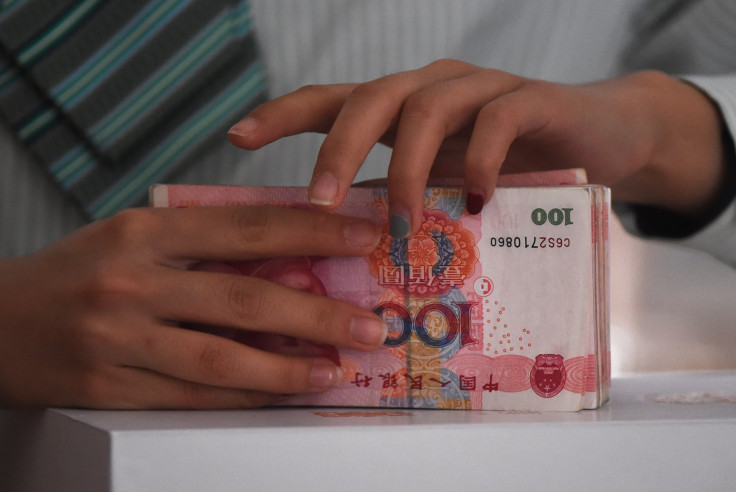Yuan Falls As China Moves Toward Tighter Currency Control

China’s central bank has drafted rules to tax forex transactions as it also reduced the yuan’s reference rate by 0.26 percent Tuesday, the biggest cut in over two months, according to reports. The People’s Bank of China (PBOC) hopes to curtail currency speculation that takes advantage of the difference in yuan’s rate on the mainland and offshore.
The initial rate of the forex levy — nicknamed the Tobin tax after Nobel laureate James Tobin — may be kept at zero while authorities fine-tune the rules, according to sources familiar with the matter who spoke to Bloomberg. They added that the tax would be designed to allow legitimate forex transactions, such as hedging, to be undertaken, and that it would target currency speculation.
“The levy will hurt market sentiment and make investors more panicked, as this shows that existing capital controls are not enough to curb outflows,” Andy Ji, a Singapore-based foreign-exchange strategist and economist at Commonwealth Bank of Australia, told Bloomberg.
A tax on foreign exchange transactions would stand in contrast to an increasing role of market forces in the world’s second-largest economy and would also come in the way of China’s plans to create an international reserve currency. The yuan is scheduled to be included in the International Monetary Fund’s reserve-currency basket in October this year.
The draft rules will need to be approved by the Chinese government before they can be implemented.
PBOC set the daily fixing for the reference rate of yuan at 6.5079 to the U.S. dollar Tuesday, a weakening of 0.26 percent. The daily fixing restricts the onshore forex rates to a 2 percent movement on either side.
The move sent the offshore currency lower, and the yuan fell 0.12 percent in Hong Kong, trading at 6.5014 a dollar at 10:58 a.m., local time (10:58 p.m. EDT Monday). The gap between the onshore and offshore currency reduced to 0.07 percent, down from its record 2.9 percent in early January, Bloomberg reported.
Providing another possible reason for the central bank’s move, Zhou Hao, an economist at Commerzbank AG in Singapore, reportedly said: “Today’s weaker fixing may signal the PBOC’s unwillingness to keep the currency too strong while various economic data disappoint to the downside.”
© Copyright IBTimes 2024. All rights reserved.





















